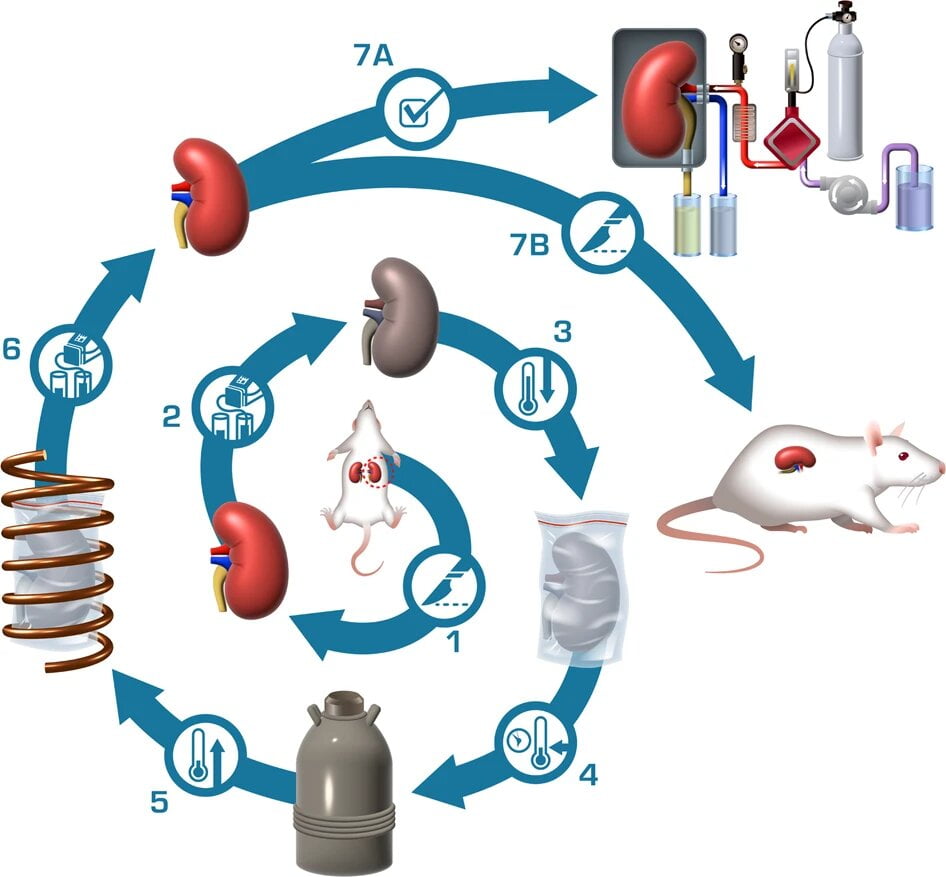
An international research team has discovered a weak point in prostate cancer cells, including a subunit of the spliceosome that is overexpressed in prostate cancer, driving uncontrolled cell growth. The team found that inhibiting this compound significantly reduced the growth of prostate cancer compared to standard treatments, providing an opportunity for better, more targeted drugs that could be used in other types of cancer.
An undiscovered weakness in prostate cancer cells could lead to new ways to treat other types of cancer.
Worldwide, prostate cancer is the most common cancer in men. Based on global estimates, one in six men is predicted to develop prostate cancer during their lifetime, and more than 375,000 patients die each year.
A major contributor to these sad statistics is the innate resistance of cancer cells to existing therapies, underscoring the need for new therapies. In a surprising development, an international research project involving the University of Bern, the Inselspital Bern, and the University of Connecticut (USA) has discovered a previously unknown weak spot in prostate cancer cells. Interestingly, this vulnerability can also be found in other types of cancer cells.
The study was led by Mark Rubin from the Department of Biomedical Research (DBMR) and the Center for Precision Medicine (BCPM) at[{” attribute=””>University of Bern and Inselspital Bern, and Rahul Kanadia from the Department of Physiology and Neurobiology and the Institute for Systems Genomics at the University of Connecticut. The research results have now been published in the journal Molecular Cell.
Previously unknown driver of prostate cancer identified
“We took a closer look at a certain molecular machine called the spliceosome,” explains Anke Augspach, lead author of the study and researcher from the Department for BioMedical Research (DBMR). “It plays an important role in the translation of genes into proteins. In this process, the spliceosome separates parts of the gene that are not needed for the production of the protein and fuses the other parts.”
While almost all genes undergo this process in the so-called major spliceosome, the minor spliceosome is used in less than one percent of genes. “Nevertheless, the minor spliceosome is enormously important because it particularly processes genes that play a crucial role in cell growth. And it is this cell growth that gets out of control in cancer – but the precise mechanism behind this remained unclear,” explains Rahul Kanadia, study co-author from the Physiology and Neurobiology Department and the Institute for Systems Genomics at the University of Connecticut.
In their investigations, the team found various indications for the central role of the minor spliceosome in cancer. “We were able to show that a specific component of the minor spliceosome is significantly increased in advanced prostate cancer,” explains study co-author Mark Rubin of the Department for BioMedical Research (DBMR) and Bern Center for Precision Medicine (BCPM). This led the researchers to suspect that cancer cells activate the minor spliceosome through this component and thus stimulate uncontrolled cell growth.
An entirely new approach to cancer therapies
The researchers were able to confirm their assumption with the help of laboratory test models such as 2D cell cultures and organoids – miniature organs that are grown in the laboratory based on patient samples. They were also able to show that inhibiting the specific component led to a greater reduction in the growth of prostate cancer than current standard therapies.
“Accordingly, blocking this process should hold therapeutic potential,” Mark Rubin says. “This is the target that that we were hunting.”
Rahul Kanadia adds that “the blocking leads to a decrease in cancer growth without affecting the growth and survival of normal cells.”
“This discovery is a game changer in developing more effective and targeted combination therapies for cancers such as prostate cancer and other types of cancer. We want to work on this in the coming years – and have already applied for the corresponding patent,” Rubin concludes.
Research supported with 1 million dollars
The research results come from a project supported by the US Prostate Cancer Foundation (PCF) with the Igor Tulchinsky-Leerom Segal-PCF Challenge Award 2022. The foundation funds interdisciplinary projects that pursue promising approaches to combat recurrent or advanced prostate cancer. The award is endowed with 1 million dollars. “We commend the research team on their achievement and proudly support their work to bring us closer to our mission to eliminate death and suffering from prostate cancer,” says Howard R. Soule, Executive Vice President and Chief Science Officer of the PCF.
Reference: “Minor intron splicing is critical for survival of lethal prostate cancer” by Anke Augspach, Kyle D. Drake, Luca Roma, Ellen Qian, Se Ri Lee, Declan Clarke, Sushant Kumar, Muriel Jaquet, John Gallon, Marco Bolis, Joanna Triscott, José A. Galván, Yu Chen, George N. Thalmann, Marianna Kruithof-de Julio, Jean-Philippe P. Theurillat, Stefan Wuchty, Mark Gerstein, Salvatore Piscuoglio, Rahul N. Kanadia and Mark A. Rubin, 8 June 2023, Molecular Cell.
DOI: 10.1016/j.molcel.2023.05.017
#Previously #Unknown #Vulnerability #Prostate #Cancer #Discovered

